 If 2020 has demonstrated anything, it is the overall resilience of people and the ability to adapt. Particularly here in Victoria where we had to endure over 200 days in isolation, businesses had to rapidly adopt new models of working, conference calls, video conferencing, virtual meetings are now the norm with competing backgrounds from children, spouses and pets.
If 2020 has demonstrated anything, it is the overall resilience of people and the ability to adapt. Particularly here in Victoria where we had to endure over 200 days in isolation, businesses had to rapidly adopt new models of working, conference calls, video conferencing, virtual meetings are now the norm with competing backgrounds from children, spouses and pets.
EPOS has been on a mission to highlight the importance of audio quality for businesses. According to the latest research published by them, audio quality has become the new priority for businesses. This latest report, ‘Quality Audio: A Sound Investment’ shares insights from 2,000 decision makers across seven global markets including Australia, and sectors including IT, Finance, Business Services, Healthcare and Media. The report found that 83% of business leaders say audio equipment has become more important compared with two years ago. They now see audio as key to maintaining client, employee, and partner communication, and this has been exponentially increased as workforces continue to work remotely. Within this shift in prioritisation, sound quality has emerged as a non-negotiable enabler of business continuity, client and partnership management and internal communications.
I have personally seen the effects of how COVID has changed my workspace. The shift to phone calls, online demonstration of equipment without any of the usual body language cues, you become heavily reliant on picking up feedback in the vocal nuances of people. Reality is that the genie is out of the bottle now. Clients will be more reluctant to travel to the showroom, taking out a sizeable chunk of their work day. Staff have had a taste of work from home, particular now that remote learning is a thing of the past (for now). A reduction in travel (airplane) has not harmed agile businesses who have been able to adapt to virtual meetings.
Paying for quality makes business sense
As the benefits of remote working have become clear to business leaders and employees alike, virtual collaboration is here to stay for millions of us. Business leaders have embraced remote working and as part of this are now seeking to address traditional pain points like background noise, interference, and poor audio quality.
This is because it is well established that effective call quality leads to better customer service, stronger employee engagement and greater collaboration. Of the decision makers surveyed, 56% say high-quality audio equipment is essential to their business, and a further 34% think it is desirable. 66% of those working in Healthcare and 64% in IT and Digital sectors say high-quality audio equipment is indispensable to their performance. Meanwhile, 42% of decision makers globally (and over half in APAC and Germany – 51%) have observed an increase in the importance of audio technology to their business, in helping to maintain client relationships.
In fact, audio quality is becoming so important that 78% of decision makers are willing to pay extra for it – this is especially true for those in the Sales and Marketing industries (56%) where audio quality is viewed as integral to maintaining client and partner communication, thus becoming inextricably linked with overall business performance.
Large organisations take the lead
Most employers now recognise the need for individuals to have quality audio equipment as part of their standard working set-up. 95% of those surveyed will be continuing to periodically invest in new audio equipment for individual use with 50% citing they will be doing this every two to three years moving forward.
While some might lag in the journey to fully realising the benefits of effective collaboration and quality audio in day-to-day working life, EPOS has found that larger organisations (more than 1,000 employees) are a step ahead. The more employees an organisation has, the more frequently money will be spent on new audio equipment, showing that even where significant spend is needed to equip thousands of individuals with the right audio technology, business recognise the value of investment in audio.
EPOS also found that the decision to spend is being driven from the top, with C-suite level executives the most likely to push for annual investment. For 42% of organisations, there is widespread recognition that audio is critical to their success and key to maintaining client and partner communication.
Spend on audio is already earmarked for greater investment. EPOS has found the majority (57%) of business leaders expect investments in audio equipment to increase over the next two years, and organisations based in APAC, UK, US and Germany are set to take the lead with planned increases in spend. When it comes to the highest spending sectors for future audio investment, Telecoms and Utilities lead the way (73%) followed by Hospitality (68%) Finance (68%) and IT/ Digital (67%).
Future proofing for the future workforce
The current health landscape has accelerated the speed of response needed for organisations to avoid impact on business operations, and a surge in virtual meetings and calls replacing face-to-face interaction has been central to that. However, business leaders must also look beyond the pandemic toward future securing talent as Generation Z enters the workforce – remote or otherwise.
Generation Z’s representation in the global workforce is set to pass 1 billion by 2030, and with 29% of our respondents already citing younger employees needs as a key factor in the increasing importance of audio, organisations today need to understand this demographic’s motivations and ways of working. Organisations that can offer flexible experiences and well-connected technology solutions will find themselves positioned to attract and retain top talent.
“Younger users do have a greater awareness of communication endpoints. It is a good idea to involve your employees by providing them with the right tools that fit their way of working, acknowledging that everyone has different needs and there will be a different solution them. Getting the right audio equipment for the individual user and task is key to getting better results from your employees. Business leaders need to respond in line with this by harnessing new technologies to empower their workforces today, and importantly, to attract and retain the future talent still to come” comments Jeppe Dalberg-Larsen, President at EPOS.
“In our latest research, half [49%] of the business leaders we surveyed said that an increase in hybrid working has elevated the importance of audio equipment and technology for their business. These decision makers are beginning to understand that a one size fits all approach will not cut it. They need to map out how they see their organisation working and the different communication endpoints their employees will need, back in the office or, more likely, as part of a new hybrid-model. Quality audio equipment and technology solutions will have a significant influence on defining and enabling what business success looks like today and ten years down the line.”
Rsearch Methodology
Research conducted by Sapio on behalf of EPOS, the interview data was collected online in September 2020, using an email invitation and an online survey. The respondents consisted of 1859 business decision makers with responsibility for choosing audio equipment and technology for their organization. The main target sample consisted of respondents from 7 regional areas: The US, the UK, Germany, France, Belgium and Netherlands, Denmark and APAC (Australia, Hong Kong, Singapore).



